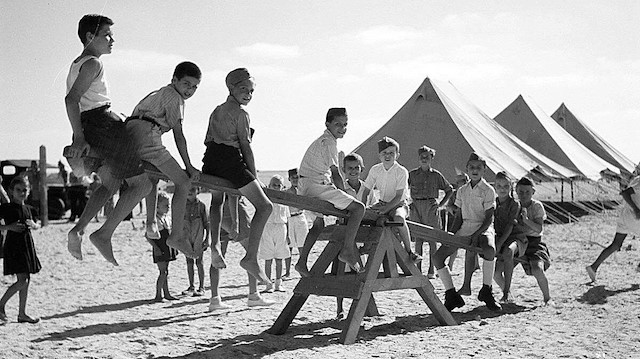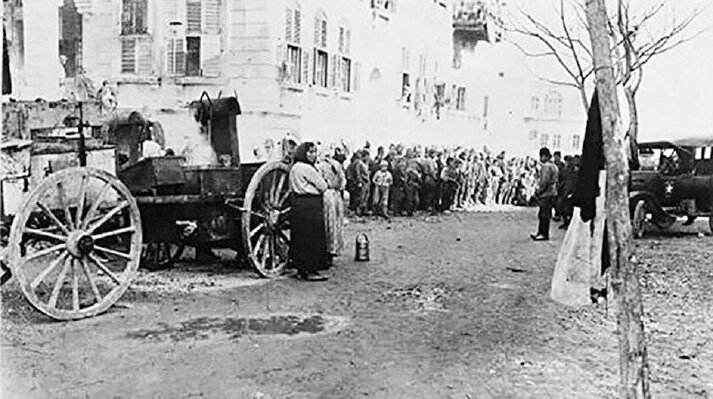
As the Syrian civil war continues to rage, it has become quite clear that Europe, where refugee hostility has been on the rise, has quickly forgotten its not-so-distant past.
During World War II, hundreds of thousands of Europeans who fled Nazi occupation and Soviet oppression, have sought protection in Middle Eastern countries.
There’s an abundance of records about migrant ancestors of Greeks who were hosted by Syria during WWII.
However, the whole world today is bearing witness to Greece’s barbaric attacks against asylum seekers on its borders.

Over 12,000 Greek migrants were hosted in camps located in the city of Nayrab, in close proximity to Saraqib, which is under attack by the Assad regime and Russia today. The majority of whom hailed from the Dodecanese islands of Greece and took refuge in towns and villages of the grandparents of Syrians who are seeking asylum in Greece and Europe today.
Greek migrants were not even crammed into camps back then but were allowed to roam freely through city centers in stark contrast to what Greeks are doing today.
In 1942 alone, over 40,000 Europeans, the majority of whom were Greek, Bulgarian, Croat and Yugoslav, lived in refugee camps in Syria, Egypt, Lebanon and Palestine. They lived under the protection provided by these countries for three years.
Between 1939 and 1941, over 300,000 Polish migrants were hosted by Iran. These camps were nothing like the open-air prisons where Europeans detain migrants today. These camps had their own hospitals, markets, schools, workplaces and playgrounds for children integrated into them.
Some of those migrants even remained in those countries long after the end of World War II.
In 2000, it was reported that almost 12,000 Polish migrants have been living in Iran.
"Greece, a member of the European Union, has suspended international and EU law. It fires on land and sea at asylum seekers who have taken refuge at its borders and behaves inhumanely, sinking their boats and attacking them with tear gas. It killed three people and injured others," Turkish Foreign Minister Mevlüt Çavuşoğlu told German newspaper Bild.
Thousands of asylum seekers have flocked to Turkey’s Edirne province which borders Greece and Bulgaria to make their way to Europe.
The Greek reaction to refugees has been harsh, with many battered, attacked, tear-gassed and several killed by Greek forces.
Turkey's decision to open the border came after 34 Turkish soldiers were martyred last week by forces of the Bashar al-Assad regime in Idlib, northwestern Syria. The Turkish soldiers were stationed there to protect local civilians under a 2018 deal with Russia in which acts of aggression are prohibited in the region.
Turkey, which already hosts nearly 4 million Syrian migrants, more than any other country in the world, says it cannot absorb another refugee wave.
Ankara has repeatedly complained that Europe has failed to keep its promises under a 2016 EU-Turkey refugee deal to help migrants and stem further migrant waves.
Hello, the comments you share on our site are a valuable resource for other users. Please respect other users and different opinions. Do not use rude, offensive, derogatory, or discriminatory language.
The floor is all yours.








